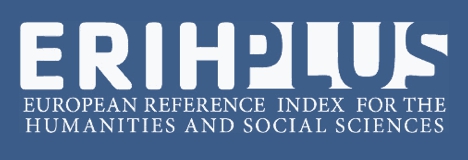Geography of religion, evangelical faith and space
Abstract
This research seeks, through literature review to identify whether and how the available literature on Religion Geography provides grants to interpret the Gospel spatiality in Brazil, in order to understand the elements that make up the territorial expansion of faith seen in recent decades. Likewise, it seeks to show how the identity reinterpretation, cultural and outreach, elapsed in this medium, prefigure various forms of interpretation of the biblical text which in turn have repercussions on different forms of appropriation and spatial cognition. It is noticed that the sacredness of the space conditioned to the presence , perception and consensus of evangelical believers assumes a variable character overcomes materials and locational aspects to fit symbolic and subjective conformation space.
References
AUGÉ, Marc. Não lugares: Introdução a uma antropologia da supermodernidade. Campinas, Papiros,1994. 111p.
BÍBLIA SAGRADA. Tradução: CNBB Conferencia Nacional de Bispos do Brasil. 10ª edição. São Paulo Ed: Canção Nova, 2002. 1563p.
BOURDIEU, Pierre. A economia das trocas simbólicas. Tradução de Sérgio Miceli et al. São Paulo, Perspectiva, 1987. 361p.
CASSIRER, Ernst. Ensaio Sobre o Homem. São Paulo, Martins Fontes, 2001. 400p.
CERTEAU, Michel de. A invenção do cotidiano. Artes de fazer. Petropolis,Vozes,1996.352p.
CUNHA, Magali do Nascimento. A explosão gospel: um olhar das ciências humanas sobre o cenário evangélico no Brasil. Rio De Janeiro, Mauad X: Instituto Mysterium, 2007. 231p
DURKHEIM, Émile. As formas elementares da vida religiosa. São Paulo, Martins Fontes, 1996. 609p.
ELIADE, Mircea. O sagrado e o profano: a essência das religiões. Trad. Rogério Fernandes. São Paulo: Martins Fontes, 1992. 109p.
GIL FILHO, Sylvio F. Espacialidades de Conformação Simbólica em Geografia da Religião: um Ensaio Epistemológico. Espaço e Cultura UERJ (RJ) n. 32, p.78-90, Jul./ Dez. de 2012. Disponível em: http://www.e-publicacoes.uerj.br/index.php/espacoecultura/ Acessado em: 13/05/2015.
GIL FILHO, Sylvio Fausto. Espaço sagrado: estudos em Geografia da religião. Curitiba: Ed. IBPEX, 2008.
GIL FILHO, Sylvio. Geografia da Religião: reconstruções teóricas sob o idealismo critico. In: GIL FILHO, Sylvio F; KOZEL, Salete; SILVA, Josué D.C. (orgs.) Da percepção e cognição à representação: reconstruções teóricas da Geografia cultural e humanista. São Paulo, Ed: Terceira Margem, 2006.
MARIANO, Ricardo. Neopentecostais: sociologia do novo pentecostalismo no Brasil. 3ºed. São Paulo: Loyola, 1999. 246p.
PEREIRA, Clevisson Junior; GIL FILHO, Sylvio Fausto. Geografia Da Religião E Espaço Sagrado: diferenças entre as noções de lócus material e conformação simbólica. Ateliê Geográfico, Goiânia (GO) v. 6, n. 1, abr/2012, p.35-50.
ROSENDAHL, Zeny; CORREA; Roberto Correa.(orgs). Introdução a Geografia Cultural. Rio de Janeiro, Bertrand Brasil, 2003 224p.
ROSENDHAL, Zeny Espaço e Religião: uma abordagem geográfica. 2 ed. Rio de Janeiro: UERJ, NEPEC, [1996] 2002.
______. Espaço, cultura e religião: dimensões de analise. In: CORREA, Roberto Lobato; ROSENDHAL, Zeny (org). Introdução à Geografia cultural. Rio de Janeiro: Bertrand Brasil, 2003.
SANTOS, Alberto Pereira. Introdução à Geografia das religiões. GEOUSP: Espaço e Tempo, São Paulo, nº 11, p.2133,2002.
SYLVESTRE, Josué. Irmão vota em irmão: os evangélicos, a constituinte e a bíblia. Brasilia. Pergaminho,1986

This work is licensed under a Creative Commons Attribution-NonCommercial 4.0 International License.
Policy Proposal for Free Access Journals
Authors who publish in this journal agree to the following terms:
a. Authors retain the copyright and grant the journal the right of first publication, with the work simultaneously licensed under the Creative Commons Attribution License which allows the sharing of the work with acknowledgment of the authorship of the work and initial publication in this journal.
b. Authors are authorized to take additional contracts separately, for non-exclusive distribution of the version of the work published in this journal (eg publish in institutional repository or as a book chapter), with acknowledgment of authorship and initial publication in this journal.
c. Authors are allowed and encouraged to publish and distribute their work online (eg in institutional repositories or on their personal page) at any point before or during the editorial process, as this can generate productive changes, as well as increase the impact and The citation of published work (See The Effect of Free Access).





















